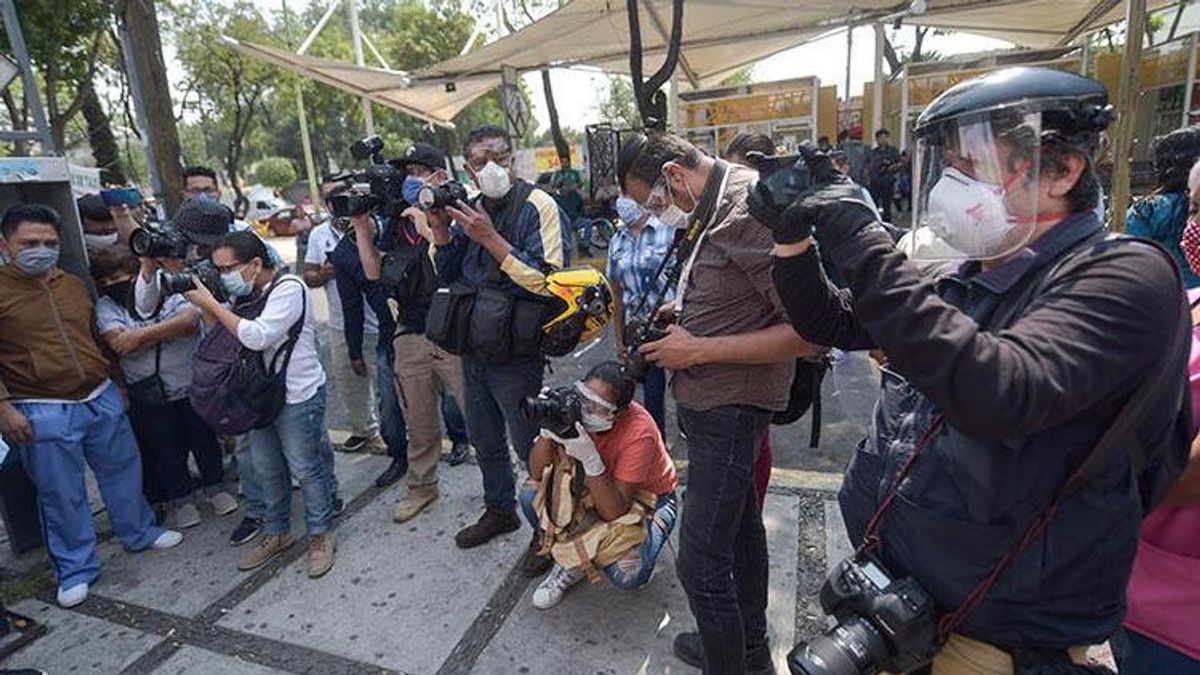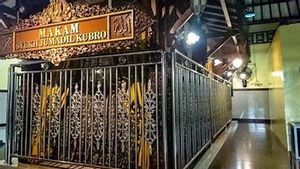JAKARTA - The Committee to Protect Journalists (CPJ) recently interviewed a number of journalists in Botswana regarding efforts to reduce press freedom in the country. This was done by the state security by detaining and dismantling the cellphones or computers of the journalists.
This is experienced by Tsaone Basimanebotlhe. The Botswana journalist admitted that he was questioned by security agents at his home outside Gaborone, Botswana's capital, in July 2019. However, the police did not come to arrest or charge him. But they came to retrieve the device, looking for the source of the article published in the Mmegi newspaper.
Basimanebotlhe, a political reporter, eventually handed the agents his phone and password after they handed over the warrant. But they couldn't find the computer. A senior officer then used technology sold by Israel-based company Cellebrite to extract and analyze its thousands of messages, call logs and emails. Even his web browsing history. This is known from the police forensic laboratory.
Journalists are wanted by security agents in connection with the leaking of the names of Botswana government agents. "They are looking for people who leaked information to the media," Basimanebotlhe told CPJ.
CPJ also reported that Botswana Police were also using Cellebrite technology to search for Oratile Dikologang phones. He is a local editor who was indicted in 2020 over a Facebook post accusing police of brutally interrogating him.
The use of sophisticated tools provided by private companies to explore currently seized devices raises significant concerns over privacy and freedom of the press. The experiences of Basimanebotlhe and Dikologang show that police in Botswana use digital forensic equipment to sweep a large number of journalists' communications from confiscated devices, regardless of whether they are charged with a crime.
Botswana security forces routinely arrest journalists and take over their equipment. In March, Botswana police confiscated computers and phones from journalists and media workers who were arrested with Moeladilotlhoko News Boiler, a private Facebook-based outlet.
David Baaitse, a reporter for Botswana's Weekend Post newspaper, separately told CPJ that intelligence agents took his and his partner's phones for analysis six months after their arrest last year.
“If you take my phone and go and analyze it, you have my folders and everything, all my contacts,” Baaitse told CPJ in a recent interview.
He added that such actions by security forces hindered journalists' ability to gather information. “Source, they no longer trust us. They no longer want to deal directly with us,” Baaitse said.
“They said they couldn't find anything on my phone. They come in through my SMS, my WhatsApp," Basimaonebotlhe told CPJ.
In this case, how digital security is now very vulnerable in protecting someone's privacy, especially journalists. Technology has also exploited the work of journalists so that journalists no longer have the freedom to protect their sources. Do not be surprised if in the future there will be many sources who try to answer "no comment" to journalists, because they are afraid of technology that can expose them.
The English, Chinese, Japanese, Arabic, and French versions are automatically generated by the AI. So there may still be inaccuracies in translating, please always see Indonesian as our main language. (system supported by DigitalSiber.id)













